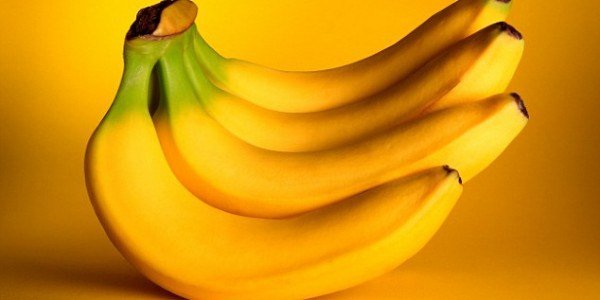Banana

The botanical name of banana is Musa acuminate colla. There are many reasons why this fruit is one of the most popular foods in the world.
Bananas are one of the most cultivated fruits and are close “relatives” of plantains, which are larger and darker and are consumed only after heat treatment.
Over the centuries, bananas have also been used for medicinal purposes, such as for:
• soothing an upset stomach /including as a remedy for morning sickness during pregnancy/;
• stress reduction;
• relief of discomfort due to stomach acids;
• to normalize intestinal peristalsis in case of constipation or diarrhea;
• soothing the symptoms of premenstrual syndrome;
• treatment of warts;
Banana – beneficial properties
These fruits contain all kinds of nutrients that are necessary to maintain good health. And above all, they are a source of flavonoids and polyphenols such as lutein, zeaxatin, alpha and beta carotenes, which act as antioxidants and bind to reactive oxygen molecules in the body.
An advantage of these fruits is also the high content of vitamin C, which is known to activate white blood cells, thus speeding up the fight against infectious diseases.
Only 1 banana contains as many as 467 mg of potassium, which is essential for maintaining a normal heart rate and blood pressure.
The fact that the same amount of fruit contains only 1 mg of sodium is also interesting.
From the consumption of 1 banana, a person can get about 28% of his daily requirement of vitamin B6, which helps prevent anemia and ischemic heart disease.
Vegetable fibers in bananas help maintain normal intestinal peristalsis, and even with the regular consumption of these fruits, one can forget about constipation.
Banana is also a relatively good source of magnesium, which, in the presence of sufficient calcium, helps to strengthen bones and protects against the development of cardiovascular diseases.
The manganese contained in these fruits is a cofactor, along with zinc and copper, in the antioxidant enzyme superoxide dismutase /SOD/.
A banana also provides a sufficient amount of the mineral copper, which is necessary for the hematopoietic process component.
Nutritional value
1 cup of sliced bananas – approximately 150 grams contains:
• 133 kilocalories;
• Carbohydrates – 34 grams;
• Sugars -18 grams ;
• Vegetable fiber – 4 grams;
• Protein – 2 grams;
• Sodium – 2 milligrams;
Scientific research
Study results show that bananas dominate among fruits and vegetables that reduce the risk of developing and developing renal cell cancer.
Another study found that these fruits, because they are rich in vitamin A and carotenoids, have the potential to protect against chronic diseases such as diabetes, cardiovascular diseases, as well as some other types of cancer.
Contraindications for the consumption of bananas
These fruits could adversely affect the stomach and intestines of small children, so parents should be careful when giving them as a treat. There is a possibility that the child’s belly will swell, get colic and even get poisoned.
In addition to children, bananas should also be avoided by people with diseases of the cardiovascular system. It is especially dangerous to combine these fruits with diseases such as thrombophlebitis, ischemic heart disease and in cases of increased blood clotting.
This is due to the fact that bananas have a diuretic effect and can therefore become a cause of blood thickening, with the possible dangerous consequences of thrombus formation and blockage of blood vessels.



